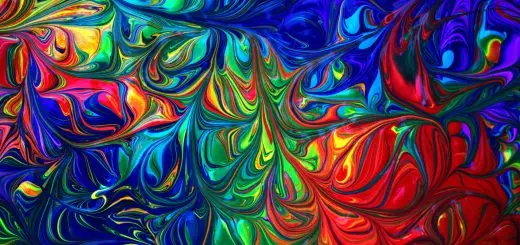Brahman in Hinduism: Understanding Ultimate Reality

Looking for more amazing products? Check out our online store and explore our collection here! Happy shopping!
Before diving in, please note: This post is for informational purposes only. If you’d like to know more about how we approach topics, feel free to check out our friendly Disclaimer Page.
Hey there, amazing readers! 
We’re committed to delivering quality posts, and your support (even just sticking around despite the ads) means everything to us. So, bear with us, and thanks for helping us keep the good vibes rolling. Now, on to the fun stuff!
TRANSLATE BUTTON AT THE END OF THE ARTICLE
A Quick Overview
Brahman is a central concept in Hinduism, representing the ultimate reality or cosmic spirit that encompasses everything in the universe.
Understanding Brahman is crucial in Hindu philosophy, as it provides insights into the nature of existence, consciousness, and the interconnectedness of all beings.
This article will delve into the various aspects of Brahman in Hinduism, exploring its characteristics, its role in creation, its relationship with the individual soul (Atman), and its significance in Vedanta and other Hindu scriptures.
What is Brahman in Hinduism?
In Hinduism, Brahman is the unchanging, eternal, and infinite reality that underlies all existence.
It is the source of the universe and the essence of everything that exists.
Brahman is beyond human comprehension and transcends all dualities, such as good and evil, light and darkness, and birth and death.
It is often described as the ultimate truth, knowledge, and bliss, and as the foundation of all creation.
Characteristics of Brahman
Brahman is characterized by its qualities of sat (existence), cit (consciousness), and ananda (bliss).
It is omnipresent, omniscient, and omnipotent, permeating every aspect of the universe.
Brahman is beyond time, space, and causation, and is the ultimate reality that transcends all limitations.
It is described as being beyond attributes and forms, yet manifesting in various forms and names in the world.
Concept of Brahman in Vedanta
In Vedanta, one of the six orthodox schools of Hindu philosophy, Brahman is considered the highest reality and the ultimate truth.
It is the substratum of all existence and the source of all creation.
Vedanta teaches that the goal of human life is to realize one’s true nature as Brahman, through self-inquiry, meditation, and spiritual practices.
The teachings of Vedanta emphasize the unity of the individual soul (Atman) with Brahman, leading to liberation (moksha) from the cycle of birth and death.
Brahman as the Ultimate Reality
Brahman is often referred to as the ultimate reality in Hinduism, representing the underlying unity and interconnectedness of all beings.
It is the source of all creation, preservation, and dissolution, and the essence of life itself.
Brahman is beyond all dualities and distinctions, encompassing both the manifest and unmanifest aspects of reality.
It is the ground of being from which everything arises and to which everything returns.
Relationship between Atman and Brahman
In Hindu philosophy, the individual soul (Atman) is believed to be identical with Brahman, the universal soul.
The Upanishads teach that the true nature of the self (Atman) is the same as the ultimate reality (Brahman), and that realizing this unity leads to liberation and spiritual enlightenment.
The relationship between Atman and Brahman is central to the teachings of Advaita Vedanta, which emphasizes the non-dual nature of reality and the oneness of all existence.
Brahman in the Upanishads
The Upanishads, a collection of ancient Hindu texts that explore the nature of reality and the self, extensively discuss the concept of Brahman.
They describe Brahman as the unchanging reality that underlies all phenomena, and as the source of creation, preservation, and dissolution.
The Upanishads teach that realizing Brahman through spiritual practices and self-inquiry leads to liberation from the cycle of birth and death, and to the attainment of true knowledge and eternal bliss.
Path to Realizing Brahman
Realizing Brahman in Hinduism involves spiritual practices such as meditation, self-inquiry, devotion, and ethical living.
By purifying the mind, cultivating virtues, and detaching from worldly desires, individuals can gradually transcend the limitations of the ego and realize their true nature as Brahman.
The path to realizing Brahman varies among different schools of Hindu philosophy, each emphasizing different methods and practices to attain spiritual enlightenment and liberation.
Importance of Brahman in Hindu Philosophy
Brahman is of central importance in Hindu philosophy, serving as the foundation of all metaphysical and spiritual teachings.
Understanding Brahman provides insights into the nature of reality, consciousness, and the self, and offers a framework for understanding the interconnectedness of all beings.
The concept of Brahman also underpins the ethical and moral teachings of Hinduism, emphasizing the unity of all existence and the interdependence of all living beings.
Brahman as the Source of Creation
Brahman is considered the source of creation in Hinduism, being both immanent and transcendent in nature.
It is the cosmic spirit that manifests as the universe and all beings within it.
Brahman is the creative force that brings about the diversity and multiplicity of existence, while also remaining beyond the limitations of time, space, and causation.
The concept of Brahman as the source of creation highlights the interconnectedness and unity of all life forms.
Brahman in the Bhagavad Gita
The Bhagavad Gita, a sacred Hindu scripture that presents the teachings of Lord Krishna to the warrior Arjuna, also discusses the concept of Brahman.
Lord Krishna describes himself as the ultimate reality (Brahman) that underlies all existence, and teaches Arjuna about the nature of the self, the importance of duty, and the path to spiritual liberation.
The Bhagavad Gita emphasizes the unity of the individual soul with Brahman, and the need to cultivate devotion, wisdom, and selfless action in order to realize one’s true nature.
Role of Brahman in Hindu Worship
In Hindu worship and rituals, Brahman is often invoked in the form of various deities and manifestations, such as Vishnu, Shiva, Devi, and Ganesha.
These deities are considered different aspects of the ultimate reality (Brahman), representing different qualities and powers of the cosmic spirit.
By worshiping these deities through prayers, offerings, and rituals, devotees seek to connect with Brahman and attain spiritual grace, blessings, and protection.
Hindu worship serves as a means of expressing devotion, gratitude, and reverence to the divine presence of Brahman in the world.
Conclusion
Brahman is a profound and complex concept in Hinduism, representing the ultimate reality and cosmic spirit that underlies all existence.
Understanding Brahman provides insights into the nature of reality, consciousness, and the interconnectedness of all beings.
Brahman is characterized by its qualities of sat (existence), cit (consciousness), and ananda (bliss), and is considered the source of creation, preservation, and dissolution.
The relationship between Atman and Brahman is central to Hindu philosophy, emphasizing the unity of the individual soul with the universal soul.
By realizing Brahman through spiritual practices and self-inquiry, individuals can attain liberation (moksha) from the cycle of birth and death, and experience the eternal bliss of the ultimate reality.

The Enlightenment Journey is a remarkable collection of writings authored by a distinguished group of experts in the fields of spirituality, new age, and esoteric knowledge.
This anthology features a diverse assembly of well-experienced authors who bring their profound insights and credible perspectives to the forefront.
Each contributor possesses a wealth of knowledge and wisdom, making them authorities in their respective domains.
Together, they offer readers a transformative journey into the realms of spiritual growth, self-discovery, and esoteric enlightenment.
The Enlightenment Journey is a testament to the collective expertise of these luminaries, providing readers with a rich tapestry of ideas and information to illuminate their spiritual path.
Our Diverse Expertise
While our primary focus is on spirituality and esotericism, we are equally passionate about exploring a wide range of other topics and niches 

To ensure we provide the most accurate and valuable insights, we collaborate with trusted experts in their respective domains 
Our blog originally focused on spirituality and metaphysics, but we’ve since expanded to cover a wide range of niches. Don’t worry—we continue to publish a lot of articles on spirituality! Frequently visit our blog to explore our diverse content and stay tuned for more insightful reads.
Hey there, amazing reader! 
Check out our store here and take a peek at some of our featured products below! Thanks for being awesome!











